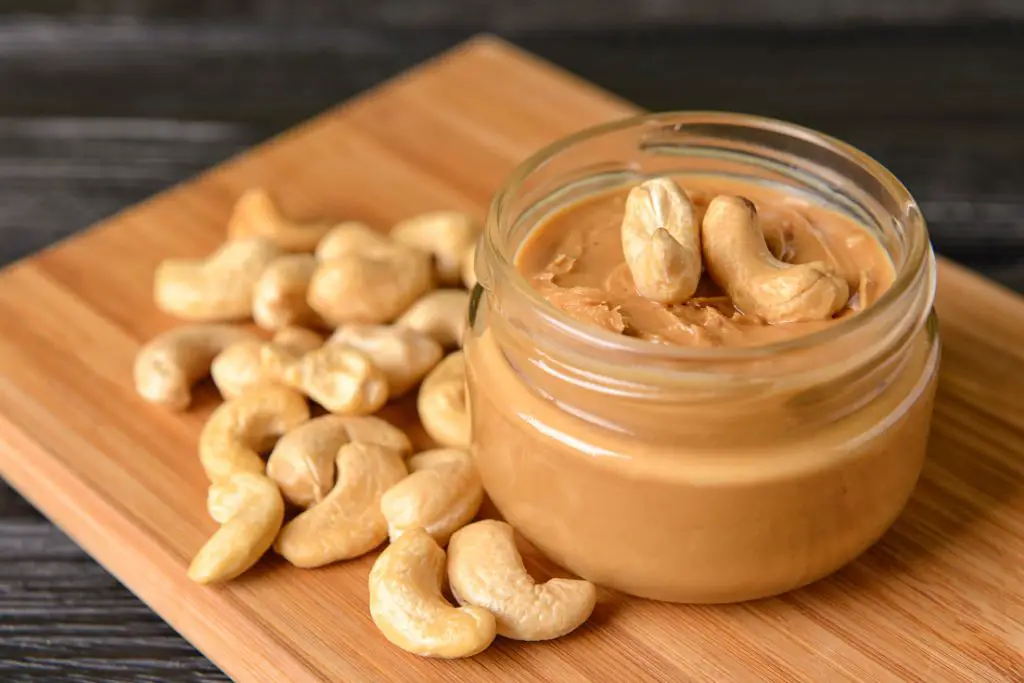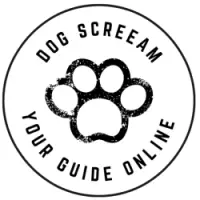Can dogs eat cashew butter? Cashew butter is a popular spread made from ground cashews that are often used as a healthier alternative to peanut butter. But can dogs eat cashew butter, or is this a food that should be avoided?
The short answer is that it is generally safe for dogs to eat cashew butter in moderation. Cashew butter is a good source of protein, fiber, and healthy fats, which can be beneficial for dogs. It is also relatively low in sugar and calories compared to other nut butter types, making it a safer choice for dogs prone to weight gain or pancreatitis.

However, it is essential to remember that nut butter is not a natural part of a dog’s diet and should only be given as a treat in small amounts. Like all treats, nut butter should be fed in moderation as part of a balanced diet to avoid weight gain and other health problems.
In addition, some dogs may be intolerant to nuts or have allergies to certain nuts, including cashews. If your dog has any underlying health issues or sensitivities, it is essential to consult your veterinarian before giving them cashew butter or any other new food.
If you want to give your dog cashew butter, it is best to choose a plain, unsweetened variety that is free from additives and preservatives. You can give your dog a small spoonful as a treat or mix a small amount into their regular meals. Just be sure to keep the portions small and monitor your dog for any adverse reactions.
While cashew butter can be a healthy and tasty treat for dogs in moderation, it is essential to use caution and consult your veterinarian before giving it to your dog. As with any new food, it is important to introduce it slowly and in small amounts to see how your dog tolerates it. Following these guidelines can help ensure that your dog stays healthy and happy.
It is also important to remember that nut butter, including cashew butter, is not a complete or balanced source of nutrition for dogs. While they provide some protein, fiber, and healthy fats, they lack other essential nutrients that dogs need to support their overall health and well-being.
Dogs require a diet rich in high-quality proteins, fats, and carbohydrates to support their energy needs and muscle health. They also need a variety of essential vitamins and minerals to support their immune system, bone health, and other vital functions.
To ensure that your dog gets all the nutrients they need, it is essential to feed them a complete and balanced diet of high-quality dog food appropriate for its size, age, and activity level. This means choosing a brand and formula made with natural, whole ingredients and meeting the nutritional guidelines established by the Association of American Feed Control Officials (AAFCO).
If you want to give your dog cashew butter or other treats as part of their diet, it is essential to keep the portions small and adjust their regular meals accordingly. This will help prevent weight gain and other health problems from overfeeding.
In conclusion, while cashew butter can be a healthy and tasty treat for dogs in moderation, it is essential to use caution and consult your veterinarian before giving it to your dog. As with any new food, it is important to introduce it slowly and in small amounts to see how your dog tolerates it. Following these guidelines can help ensure that your dog
stays healthy and happy. It is also important to remember that nut butters, including cashew butter, should be fed as a treat, not as a replacement for your dog’s regular meals. A balanced diet of high-quality dog food is essential for your dog’s overall health and well-being. Feeding them a diet high in treats or other non-nutritious ingredients can cause nutritional imbalances and other health problems.
Suppose you consider adding cashew butter or other nut butter to your dog’s diet. In that case, it is essential to do so under the guidance of a veterinarian or a veterinary nutritionist. These professionals can help you determine the appropriate amounts and frequency of supplementation for your dog based on size, age, activity level, and any underlying health issues.
